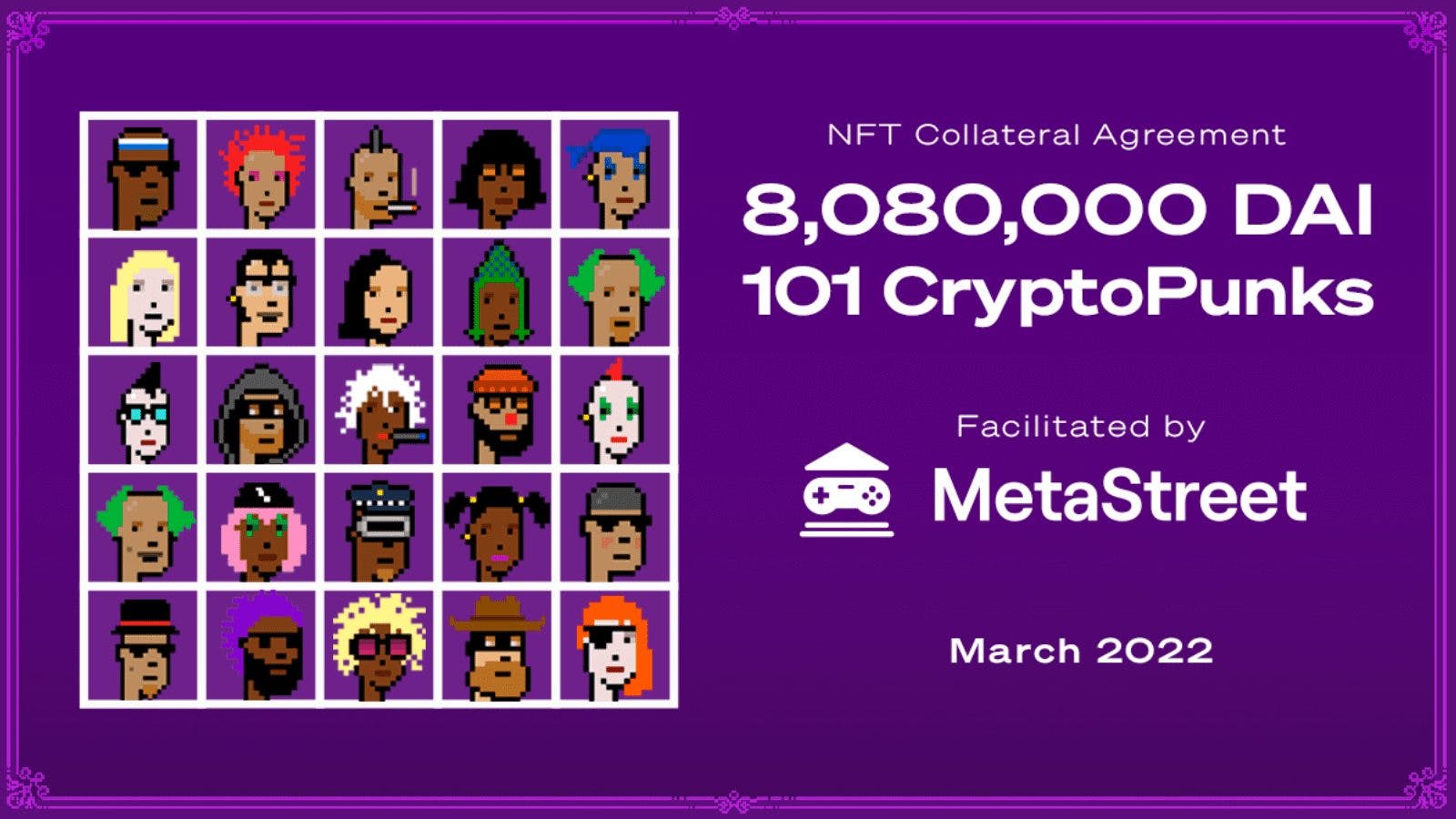In Largest-ever NFT-backed Loan, 101 CryptoPunks Put Up as Collateral
Blockworks Exclusive: The loan has an APR of 10% with a 30-day duration

Source: MetaStreet
key takeaways
- The loan was completed by NFT liquidity scaling startup MetaStreet on lending platform NFTfi
- “By having an active borrowing and lending market [in NFTs], you create productive assets that are otherwise viewed as unproductive,” Conor Moore, co-founder of MetaStreet, told Blockworks
In what has been billed as the largest-ever NFT-backed loan, an anonymous borrower just took out an $8 million loan collateralized by their collection of 101 CryptoPunks.
The loan has an APR of 10% and a 30-day duration. It was facilitated by liquidity scaling solution MetaStreet on peer-to-peer lending platform NFTfi.
The financing is seen by industry participants as a bellwether of the future of lending secured by digital collectibles — a market expected to grow as institutional interest in the sector continues to build.
Conor Moore, co-founder and chief operating officer of MetaStreet, told Blockworks the loan is “orders of magnitude larger” than previous NFT (non-fungible token) financing. MetaStreet helped to complete another record-breaking loan last year — a $1.42 million loan collateralized by an Autoglyph.
Moore did not disclose the identity of the borrower, who he referred to as “whale,” or someone who holds large amounts of cryptocurrency.
MetaStreet, which has eight full-time employees, secured $3 million in seed financing and $11 million in initial protocol liquidity earlier this year. The firm provides a layer of financial infrastructure to NFTs, specifically lending protocols such as NFTfi and Arcade.
“It’s sort of like how Fannie Mae works in the US housing market. You’ve got a big aggregation vehicle through which originators can sell loans that then get batched up and split into different tranches,” Moore said. “Those different tranches allow for more optimal capital efficiency.”
NFT collectors, co-founder and CEO of MetaStreet David Choi said, want to free up capital more efficiently and don’t want their cryptoassets to accumulate “virtual dust.”
“I think [NFT] borrowing markets will just grow bigger and bigger, which means its purchasing power will increase,” Choi said. “It’s like instead of putting all of your money into buying a house, you get a mortgage, which means you don’t have to pay that 90% until later. [With MetaStreet], I think we’re extending the purchasing power of the entire industry.”
Start your day with top crypto insights from David Canellis and Katherine Ross. Subscribe to the Empire newsletter.





